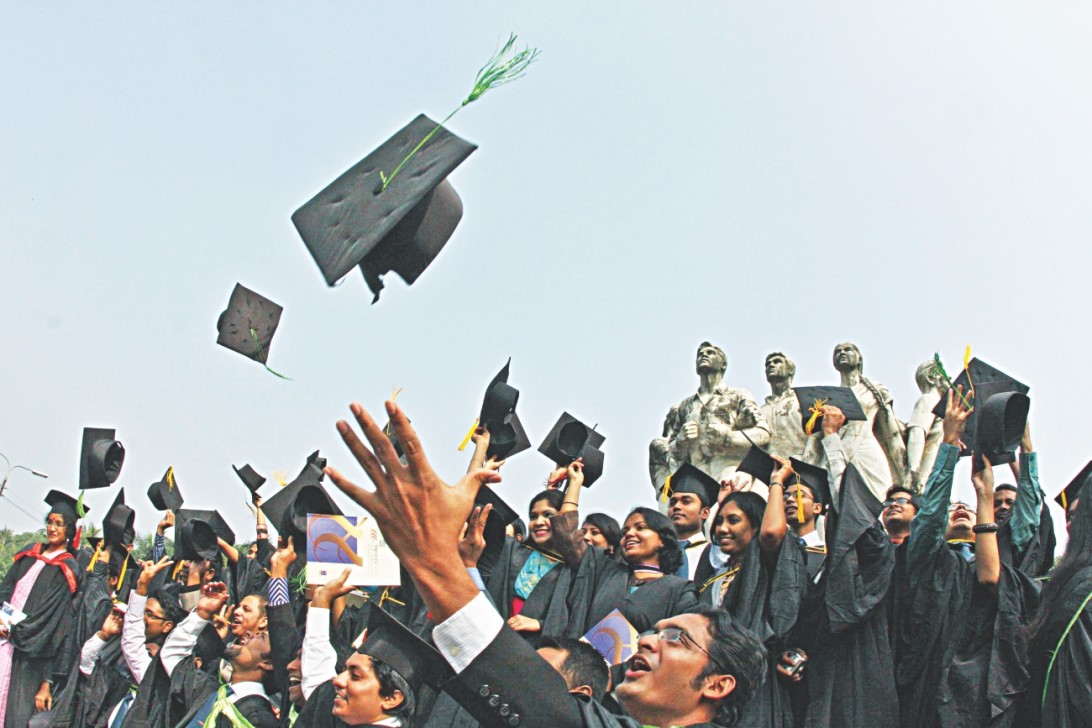Fund dearth nips dreams in bud

After completing MBA from a private university in 2011, Anis Hossain looked for a decent job for around three years. But he did not succeed.
Later in 2014, he took training on livestock at a youth training centre under the youth and sports ministry with a dream to become an entrepreneur.
Hossain, hailing from Chandpur, needed Tk 5 lakh to set up a livestock farm, but he got only Tk 80,000 from state-run Karmasangsthan Bank (Employment Bank).
He approached a few more banks for loans, but his efforts went in vain. In the end, he had to turn to relatives to borrow money.
Hossain is lucky as he got the fund needed, for which majority of the would-be entrepreneurs have to struggle a lot.
Like Hossain, Alam Khan also received training on goat rearing after failing to land a job in 2015. But his dream was nipped in the bud as he could not raise the fund he needed to run the business.
“People who have political power get loans from any bank easily. Banks do not want to lend people like us,” said a frustrated Khan, now 32.
Dearth of capital is standing in the way of flourishing entrepreneurship in Bangladesh. This is not the only factor.
“Many trainees believe that people, including family members, don’t respect self-employment, leading many educated youths to refrain from trying their luck in entrepreneurship despite completing the training,” Khan said.
Majority of the youths who took training to become entrepreneurs could not materialise their dream, according to government data.
As of June last year, the Department of Youth Development has imparted trainings to 55.01 lakh youths on self-employment since its inception in 1981.
Of them, only 20.32 lakh, or nearly 37 percent, got engaged in some sort of self-employment.
They received the training in areas such as livestock, fish farming, computer, graphics design, refrigeration and air-conditioning, electronics, electrical, handicraft, plumbing and pipe fittings, masonry and welding.
Farouqe Ahmed, director general of the Department of Youth Development, said they provide a trainee Tk 40,000 to Tk 1 lakh in loan.
“It is true that the amount is not enough. We have already urged the government to give us more funds,” he said.
Ahmed said the government is formulating a national consolidated SME loan policy to provide more credit to the would-be entrepreneurs. Under the new policy, the department will be able to lend as high as Tk 2 lakh at 5 percent interest.
KM Habibullah, chairperson of the SME Foundation, said many ministries are providing trainings at district and upazila levels, but the outcome of the initiatives is yet to meet the expectation.
He said the foundation is exception in this case as it provides training and ensures funds for trainees. “We also connect trainees with the market so that their efforts become successful.”
The foundation can lend Tk 10 lakh to an entrepreneur and in special cases it may go up to Tk 20 lakh.
The foundation has Tk 200 crore in endowment fund, which is deposited with a number of banks. The state-run agency gives loans from the interest income of the deposits.
The Asian Development Bank (ADB) has also taken an initiative in association with the Palli Karma-Sahayak Foundation (PKSF) to meet the funding needs of women micro-entrepreneurs.
Manmohan Parkash, country director of the Manila-based lender, said training and finance are required for creating micro-entrepreneurs.
“Access to finance at an affordable rate is critical for the people, especially for rural women. So, we have taken a programme with the PKSF to provide microfinance to them,” he told The Daily Star in an interview recently.
He said women do not get bank loans easily as they have no credit rating, so, it is very difficult for them to start a business.
“Entrepreneurs should get priority as they create jobs for others,” Parkash said.
